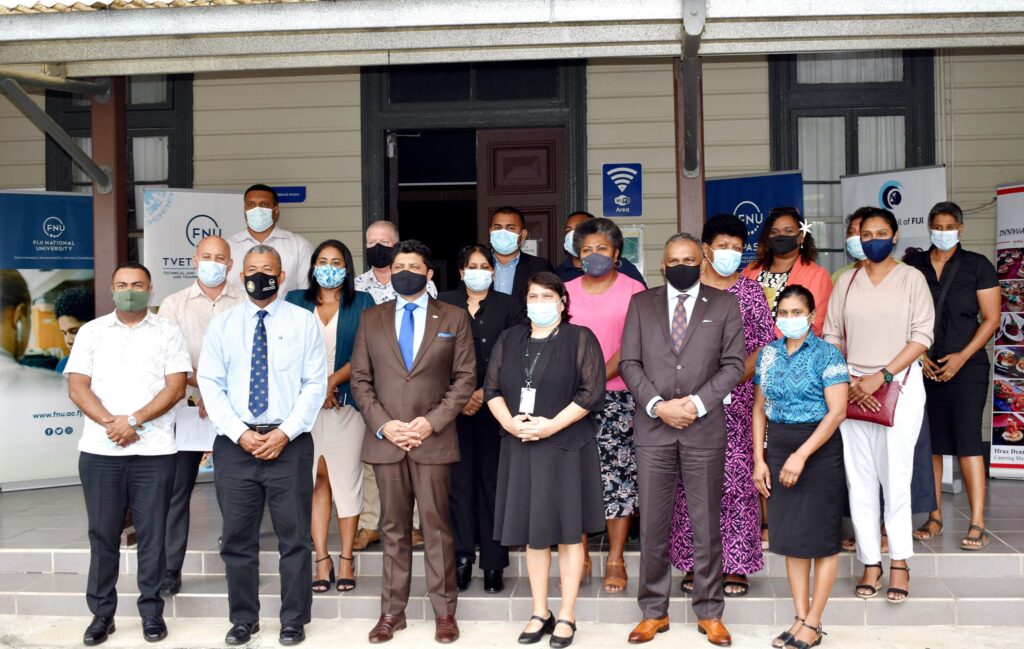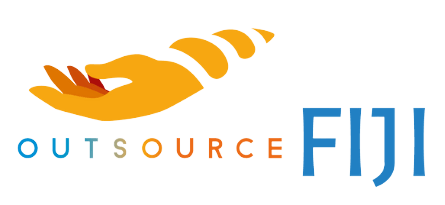Fiji has built a reputation as a world-class tourist destination and as an experienced garment and sugar producer. Now, Fiji is on its way to become a regional business hub for online-enabled services, such as business process outsourcing (BPO). Growing businesses have an important role to play on this new journey, and Business Process Outsourcing Council (BPOC) is well placed to support them.
Fiji’s competitiveness in the ICT enabled industries can be identified in four industry areas*:
- Quality and quantity of talent. Fiji has a high literacy rate of 96%. The education system supports young Fijians to enter and remain in the education system until the completion of secondary school. A high level of education allows Fiji’s workforce to participate in the online services industry, which requires computer literacy and English proficiency. Fiji is the only Pacific Island with a proven record in the online industry. The country was awarded the 2014 European Outsourcing Association (EOA) Awards, Off-shoring Destination of the Year for Mindpearl’s operation in the country.
- Competitive cost. Fiji offers a highly educated workforce with a unique predisposition for customer service at competitive rates, along with strong incentives to support industry growth and attract foreign investment. Incentives focus on lowering operational costs for new operators.
- Quality of ICT infrastructure. Fiji established two parks specialising in ICT industries. The USP ICT Park with fibre optic connection to the FINTEL Fiji hub via USP’s centre, and the ATH Technology Park; 40 acres with access to the Southern Cross Cable Network.
- Enabling environment. Since the early 2000s, Fiji identified that internet-enabled industries are a viable way to address issues of market isolation and unemployment. In the last two decades, the country has developed the necessary ICT policies, acquired infrastructure, and created a conducive environment to encourage foreign and local investment. For instance, the income of an ICT operator may be exempt from corporate tax rate for a period of 20 years from the date of issue of the licence.
In 2017, Fiji’s stakeholders kick-started the formation of the BPO Council, the industry body that would guide and ensure the development of the industry. Representatives of academia, government, industry leaders and international supporters were part of the discussion about the need to develop a strategy that would move the industry forward. The BPO Council is headed by the private sector and has governmental support from the Ministry of Commerce, Trade, Tourism and Transport, Ministry of Economy and Investment Fiji. Founding members are Centrecom, Lyndhurst Group of Companies, Greymouse, DHL, Vodafone Fiji Limited, ANZ Pacific Operations, Recoveries Corporation Pty Ltd, Telecom Fiji Limited and BSP Life.
Leaders in the telecommunications sector in Fiji shared the vision of a globally competitive industry that offers high-quality services to niche markets, specialising in services such as debt recovery, back-office services, financial services, insurance claims processing, documentation, customer service, outbound sales, telemarketing, IT help desk services and data processing. These services have increased demand in neighbouring markets such as New Zealand and Australia. Small and medium-sized businesses play a vital role in the future of the online services industry in Fiji, as they also cater to clients with small operations, interested in a closer relationship with providers and to help them scale.

The BPO Council has developed a strategy that covers industry development and market access. Key deliverables of the strategy are market research, brand and product-service awareness, and operational structure. Business Link Pacific is working to support the Council to implement its strategy, explicitly facilitating access to training for members and assisting the entry of growing BPO operators to the Council as paying members, which in time will secure even representation of the sector.
As part of this strategy, the Council is liaising with the tertiary institutions in Fiji, who are working with Skills International to develop a curriculum that provides foundational skills for contact centre roles. The Council and the FNU have already launched a certificate 3 program in basic operations in a contact centre in 2021. The Council and FNU are already outlining future courses that would deliver capabilities on debt recovery, claims processing and outbound sales. Council members will open internships to deliver the practical module of these courses. Students that complete their courses will be awarded an internationally recognised qualification.

The online service industry has enabled 3 million direct jobs worldwide. For Fiji, employment forecasts are positive, the World Bank predicts 5,809 direct jobs by 2020 and 30,000 by 2040 in the whole knowledge economy, which includes all internet enabled industries.
“In 2019, the BPO industry employed nearly 3,000 Fijians, and its target is to employ a total of 7,000 in the next five years. The industry contributes to the Fijian economy USD 32 M in foreign exchange every year and has created several working spaces custom-built to support large teams,” reports Carol Watkins, GMO at Pacific Centrecom and President of the BPO Council.
As many entry levels jobs face automatization in the BPO sector, market leaders are specialising in high skilled services to remain relevant. In this respect, Fiji can offer a well-educated young workforce supported by a well-connected diaspora of entrepreneurs.
“The Council is focusing on markets that require specialised back-office work like accounting, marketing and financial services that would generate better income. We are working with local educational institutions to make available specialised training for debt recovery, insurance claim processing. Working with academia is key to ensure the right skills are available. We often experience that graduates lack soft and negotiation skills, basic for these jobs. As providers we know that continuously improving our skill sets is key to meet the changing requirements of the industry” explains Carol.
The preservation of cultural heritage is also important for the industry. The BPO Council is set to support the cultural capital of the country, by promoting the “Bula” spirit that has characterised Fiji’s international image of a welcoming paradise. The Council is also convinced that new job alternatives will contribute to the social cohesion of the country and benefit external communities that do not participate in the industry by increasing job opportunities and economic growth.
Business Link Pacific looks forward to working with and supporting the Business Process Outsourcing Council of Fiji.
*From the 2015 World Bank report “Information and Communication Technologies for Jobs in the Pacific,” by Beschorner et al., 2015.

